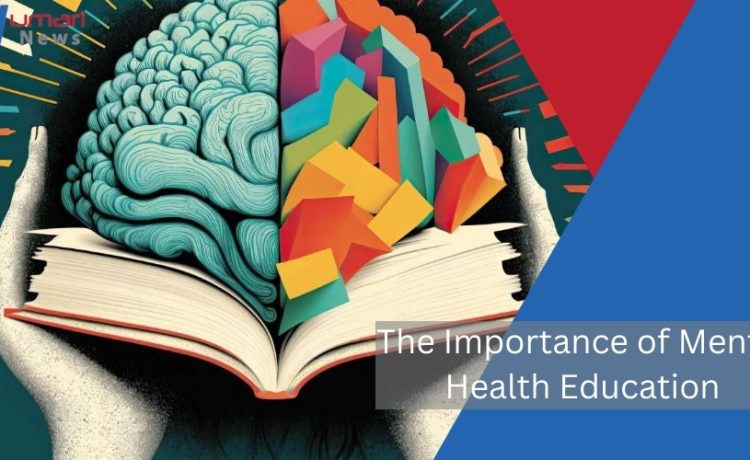Mental health education is an essential component of fostering well-being, resilience, and a healthy society. Despite its significance, mental health has often been overshadowed by physical health concerns, leading to widespread misunderstanding and stigma.
In recent years, the need for greater awareness and education surrounding mental health has become increasingly apparent, particularly as rates of mental health issues such as anxiety, depression, and stress have risen globally. This article explores the importance of mental health education and its impact on individuals and society.
1. Promoting Early Intervention and Prevention

One of the key benefits and importance of mental health education is that it encourages early intervention. Many mental health conditions, such as anxiety, depression, or eating disorders, often begin to develop during adolescence or early adulthood. Without proper education, these issues may go unrecognized or untreated, potentially leading to long-term challenges.
By incorporating mental health education into schools and communities, individuals can learn to recognize early signs of mental health problems, both in themselves and in others. This early awareness can prevent minor issues from escalating into more serious conditions.
Educating people on coping mechanisms, stress management techniques, and the importance of seeking help empowers them to take proactive steps toward maintaining their mental well-being.
2. Reducing Stigma and Encouraging Openness
One of the biggest obstacles to mental health care is the stigma surrounding mental illness. Many people hesitate to talk about their struggles or seek help due to fear of judgment or discrimination. Mental health education is critical in dismantling this stigma by normalizing discussions about mental health, much like how society now openly talks about physical health issues.
When mental health education is embedded into the curriculum and community programs, it helps people understand that mental health conditions are not signs of weakness or personal failure, but common challenges that many individuals face.
This increased awareness can create a more accepting environment where people feel safe discussing their mental health issues and seeking support when needed.
3. Empowering Individuals with Knowledge
Understanding mental health is key to managing it effectively. Mental health education provides individuals with knowledge about different mental health conditions, their symptoms, and their causes. It also teaches important skills for managing stress, emotions, and interpersonal relationships.
This knowledge empowers individuals to take control of their mental well-being. For example, someone experiencing early signs of anxiety may use techniques such as mindfulness, breathing exercises, or cognitive-behavioral strategies to reduce their symptoms. Similarly, parents, teachers, and peers who are educated about mental health are better equipped to provide support to others in need.
4. Improving Relationships and Communication
Mental health education has the potential to improve the way people interact with one another. When individuals understand the emotional and psychological aspects of mental health, they are more empathetic and compassionate. This awareness fosters healthier relationships at home, in schools, and in the workplace.
Improved communication about emotions, stress, and mental health struggles can lead to stronger support networks. Mental health education encourages people to express their feelings openly and seek help when necessary, reducing isolation and fostering stronger connections with others.
5. Enhancing Academic and Workplace Productivity
Mental health issues, particularly untreated ones, can negatively impact academic performance and workplace productivity. Students struggling with anxiety or depression may find it difficult to focus, complete assignments, or engage with peers.
Similarly, employees facing mental health challenges may experience burnout, reduced job satisfaction, or absenteeism.
By providing mental health education in schools and workplaces, institutions can create supportive environments that promote well-being. Offering mental health resources, such as counseling services or stress management workshops, can improve overall productivity and help individuals maintain a healthy balance between their personal and professional lives.
6. Contributing to a Healthier Society

At a broader level, mental health education contributes to the overall well-being of society. A population that is more informed about mental health is better able to address and reduce the prevalence of mental health disorders.
Educating individuals, families, and communities about mental health can lower rates of suicide, substance abuse, and other mental health crises.
Moreover, when mental health is prioritized at the societal level, governments and healthcare systems are more likely to allocate resources toward accessible mental health services. This leads to a more robust mental health infrastructure, making care available to all those in need.
Mental health education is essential for building a healthier, more resilient society. It promotes early intervention, reduces stigma, and empowers individuals with the tools and knowledge to manage their mental well-being.
By incorporating the importance of mental health education into schools, workplaces, and communities, we can create a more compassionate, understanding, and supportive world where individuals feel empowered to seek help and thrive mentally, emotionally, and socially.







